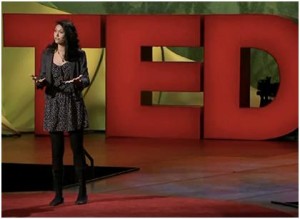In today’s society, many students are told to “follow your heart” or to “do what you love and the rest will follow”. However, these words can seem empty and vague for those who know how competitive the job market can be, especially as an increasing number of students are emerging with university degrees all over the world. When going through the motions of life, there is often a tendency to think that in order to achieve success, students need to move forward in a logical, linear direction. But what exactly is the “correct” decision to achieve success? What happens when your “game plan”, the plan you have worked towards your whole life, is no longer an option? What happens when a problem or life-changing situation occurs to you or the people around you, and your plans need to be drastically altered? Indeed, it can be quite devastating to find yourself feeling panicky and lost when you have calculated out your life to the tiniest detail, only to have those plans derailed.
Moreover, in a world with thousands of job possibilities and schooling opportunities, students are often pressed for time. With the engrained notions that “you should finish school as soon as possible” in addition to “keep going to school until you figure it out”, it can again, be stressful to think about life passions and “doing what you love”, when students are pressured to choose something right away. As a result, many students end up concentrating on one field, and often, this choice occurs more out of necessity, rather than through a student’s enjoyment or genuine interest of the field. While in a whirlwind of lectures, papers, research, volunteer, work, family, friends, and having a social life, sometimes it can be a struggle to find out what your true passion even is because of the daily grind of everyday demands.
With all of the above in mind, how can students become successful, happy, and find a career path in something that they enjoy? According to Mitchell, Levin, and Krumboltz (1999), the answer is Planned Happenstance. This theory emphasizes upon the role of chance, and taking advantage of unplanned opportunities that come along. This theory suggests that “by engaging in effective behaviors, students can turn chance events into productive opportunities by developing skills in areas like curiosity, persistence, flexibility, optimism, and risk taking.”
Here are some tips from UCalgary (which is mixed in with some tips of my own) for using planned happenstance to your advantage:
1. Explore things that you are curious about: hobbies, occupations, school subjects. Try a new activity, or look up that occupation that you are interested in, check out volunteer opportunities, attend a presentation on a topic that interests you, or take a course in an area new to you, either for credit or for fun! Increasing your exposure to more things will increase the likelihood of discovering exciting opportunities.
2. Be open-minded and flexible to new experiences: Don’t let fear of failure, indecision, or a bad first impression throw you off from exploring opportunities, both big and small. Perhaps you will find one or two experiences to be very enjoyable, and these experiences will lead to something in your future. Of course, the opposite can also happen, where the opportunities that come our way don’t match our perceived “ideal”. In that case, great! Now you know that at least you have tried it, and probably won’t do it again in the future. It’s all about the experience.
4) Be optimistic: assume good things may result from accepting unexpected invitations, attending networking events, and trying new activities. You might meet new people with common interests through work and volunteer, and make some great connections by being open to the different types of people and places you will go.
5) Take risks and get involved: It’s not always comfortable to contact people to ask them about the work they do, or to apply to a job, or to travel to somewhere new, or attend a networking event where you may meet important people. They pay off (meeting someone who can help you with your career planning, being offered a job, experiencing the adjustments of traveling and discovering more about yourself as you do, and learning about your career options), however, is worth it!
6. Accept failure as success: Sometimes situations or risks you take will not work out in the end. And that’s okay. It can be due to bad timing, luck, lack of experience, or perhaps it was not the right fit for you. Just remember that every experience is a learning experience, and that you have grown and uncovered more about yourself and your preferences because of it. If you think of things in this light, then you will not regret anything that you have done.
Lastly, remember that YOU are the one who is responsible for yourself, so something to think about as you venture through your university years is getting out of your comfort zone and taking initiative in bettering yourself. If you are constantly working to discover new things, you are also on your way to discovering yourself and what the world can offer to you.
Mitchell, K., Levin, A. & Krumboltz, J. (1999). Planned happenstance: Constructing unexpected career opportunities. Journal of Counseling and Development, 77, 115–124.
Planned Happenstance. UCalgary, n.d. Web. 04 Mar. 2014.
by Eva Chan








